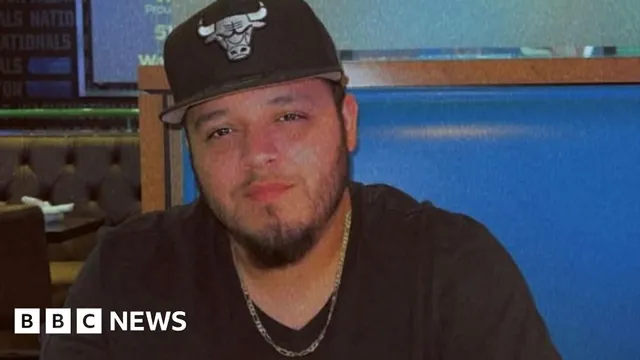
Trump admits he can bring back wrongly deported man from El Salvador
2025-04-30 18:15- Kilmar Abrego Garcia was wrongly deported to El Salvador after being identified as an MS-13 gang member.
- In an ABC News interview, Donald Trump indicated his ability to facilitate Garcia's return, contradicting previous claims by his administration.
- The case illustrates the complexities and controversies surrounding immigration enforcement under the Trump administration.
Express your sentiment!
Insights
In April 2025, President Donald Trump acknowledged in an exclusive ABC News interview that he could arrange for Kilmar Abrego Garcia’s return to the United States from El Salvador. Abrego Garcia, a Maryland resident, was wrongfully deported to El Salvador after U.S. officials claimed he was a member of the notorious MS-13 gang, a designation he and his lawyers dispute. The Supreme Court had previously ruled that his return should be facilitated after a judge determined he could not safely be sent back due to threats to his life in his home country. The case has raised questions about the legal and ethical responsibilities of the Trump administration in immigration matters. Trump's comments highlighted a significant conflict in his administration's stance regarding Garcia's deportation, as administration officials had previously claimed they lacked the authority to negotiate his return due to his status as a detainee in a foreign country. In the interview, Trump seemed to shift blame for the ongoing situation, noting that government lawyers were unwilling to assist in rectifying the deportation error. While he expressed a willingness to contact the Salvadoran president to negotiate Garcia’s return, he insisted that he was not the one making the decision. Garcia's deportation is emblematic of broader immigration policies set forth by the Trump administration that have faced legal challenges and public scrutiny, particularly as they pertain to individuals who might be at risk upon return to their countries of origin. The ongoing fallout from this case reflects the complexities surrounding immigration reform and the enforcement of laws within a changing political climate.
Contexts
The Trump administration's immigration policies have significantly reshaped the landscape of U.S. immigration since taking office in January 2017. At the core of these policies has been a strong emphasis on border security and a reduction of overall immigration. One of the hallmark initiatives was the push to construct a wall along the U.S.-Mexico border, aimed at deterring illegal crossings and enhancing border enforcement. This effort was coupled with a call for stricter immigration enforcement within the country, including increased deportations of undocumented immigrants. The administration implemented a zero-tolerance policy that led to family separations at the border, a controversial move that drew widespread criticism and legal challenges. This policy was aimed at deterring migrants from attempting to cross the border, but it resulted in significant humanitarian concerns and public outcry. Additionally, the Trump administration made substantial changes to the asylum process, tightening eligibility criteria and increasing scrutiny on asylum seekers. This included the Migrant Protection Protocols (MPP), which required asylum seekers to remain in Mexico while their claims were processed, often exposing them to dangerous conditions. Changes were also made to the Temporary Protected Status (TPS) program, with several countries being removed from eligibility, thereby affecting many immigrants who had been living in the U.S. under this status for extended periods. These actions reflected a broader strategy to significantly reduce the number of individuals who could enter or stay in the U.S. based on humanitarian grounds. Another major aspect of the administration's immigration policy involved the public charge rule, which aimed to limit green card access for immigrants deemed likely to rely on public assistance. The regulations expanded the criteria for what constitutes a public charge, increasing the burden on many immigrants seeking to obtain lawful permanent residency. This move was criticized for its potential to deter individuals from accessing essential services such as healthcare, thus impacting their quality of life in the U.S. The implications of this rule reached far beyond immigration status, as it also affected public health and community welfare as immigrants hesitated to seek necessary support. Overall, the Trump administration's immigration policies were characterized by a legalistic approach to enforcement and a marked departure from previous administrations' practices. The priority on reducing immigration resulted in widespread changes that affected millions, creating a polarizing dialogue surrounding the issue. The repercussions of these policies continue to reverberate, influencing ongoing debates about immigration reform and the treatment of migrants in the United States, as the nation grapples with its identity and values in relation to immigration.